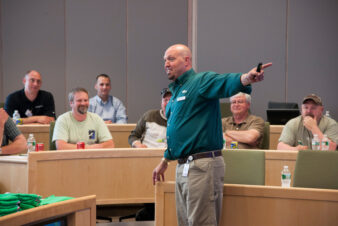On Jan. 1, Congress approved legislation designed to avoid the “fiscal cliff” and keep tax rates from increasing for every American who pays taxes. The bill now goes to the President, who is expected to sign it. In addition to many other tax provisions, the bill retroactively reinstates the 25C tax credits for high-efficiency HVAC and water heating equipment that expired at the end of 2011.
Specifically, the bill extends the tax credits that expired in 2011 from Jan. 1, 2012 until Dec. 31, 2013 for qualified equipment listed in Section 25C of the Internal Revenue Code. Because the credits were made retroactive to Jan. 1, 2012, they can be used for qualified equipment that was installed any time after Dec. 31, 2011. Qualified equipment includes:
Water Heaters ($300 Tax Credit)
Electric heat pump water heaters with an energy factor of at least 2.0. Natural gas, propane, or oil water heater with an energy factor of at least 0.82 or a thermal efficiency of at least 90 percent.
Furnaces ($150 Tax Credit)
Natural gas, propane, or oil furnace with an AFUE of not less than 95
Boilers ($150 Tax Credit)
Natural gas, propane, or oil boiler with an AFUE of not less than 95
Air Conditioners and Heat Pumps ($300 Tax Credit)
Split system central air conditioner that achieves the highest efficiency CEE tier as of Jan. 1, 2009 (16 SEER; 13 EER). Packaged central air conditioner that achieves the highest efficiency CEE tier as of Jan. 1, 2009 (14 SEER; 12 EER). Split system electric heat pump that achieves the highest efficiency CEE tier as of Jan. 1, 2009 (8.5 HSPF; 12.5 EER; 15 SEER). Packaged electric heat pump that achieves the highest efficiency CEE tier as of Jan. 1, 2009 (8.0 HSPF; 12.0 EER; 14 SEER).
Advanced Main Air Circulating Fan ($50 Tax Credit)
A fan used in a natural gas, propane, or oil furnace with an annual electricity use of no more than two percent of the total energy use of the furnace.
Source: PHCC




Join the conversation: